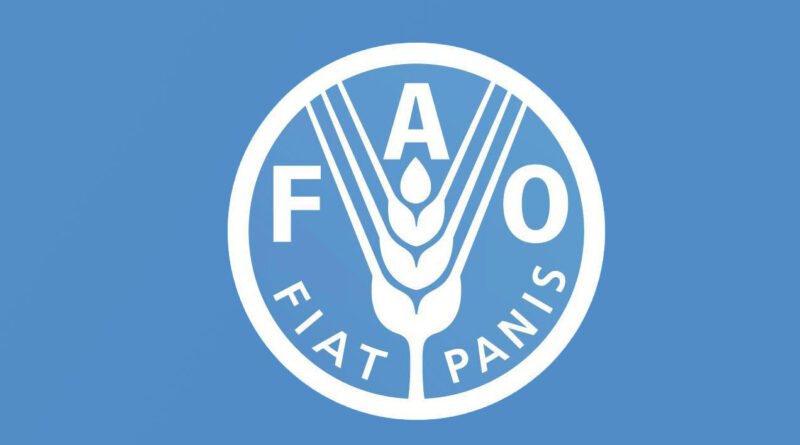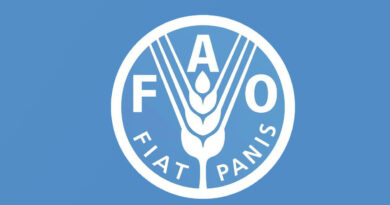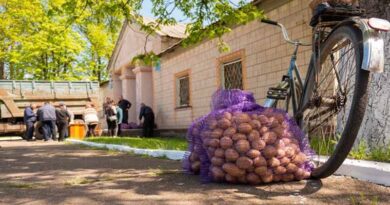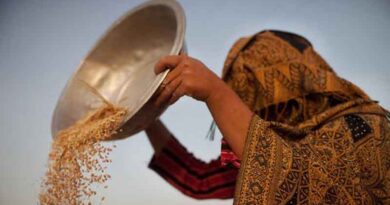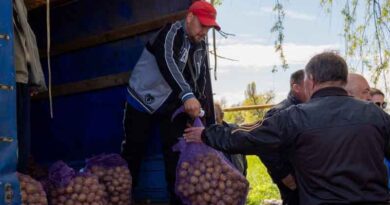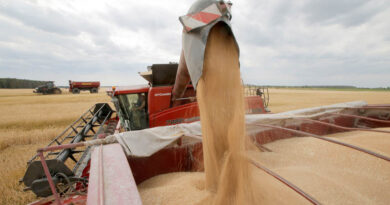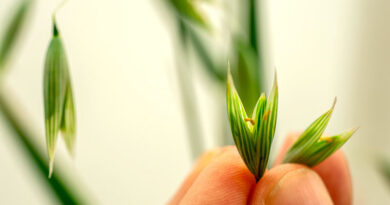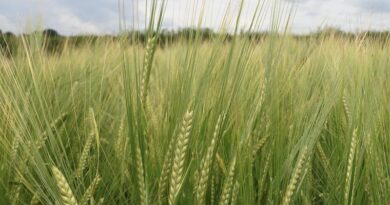FAO in Bangladesh and Japan provide homestead vegetable kits to vulnerable people in Haor wetland communities
28 May 2021, Japan: FAO and the Government of Japan have provided emergency assistance to highly vulnerable Haor wetland communities in Bangladesh affected by the coronavirus pandemic. The support will contribute to the wider food security of the country by boosting agricultural productivity while safeguarding the health of key agricultural workers against infection from COVID-19. The two Haor districts targeted are the least developed in Bangladesh. A total of 284 agricultural machines were distributed to 200 farmer cooperatives. A total of 2 000 beneficiaries received homestead vegetable production assistance. The assistance was comprised of micro-gardening kits, including seeds, fruit saplings, agricultural hand tools, a watertight drum, plus start-up cash and training.
Nayantara and her six children depend on the income of her husband who works as a farmer in the dry season and fisher in the rainy season. “He cultivates rice, corn, and so on. When water comes, he works as a fisherman. He is a poor man, what else can he do?” Nayantara said.
They now enjoy eating their own home-grown vegetables, including okra, jute, spinach, pumpkin, wax gourd and red amaranth. Nayantara said their vegetables are much fresher and tastier than the produce at the market.
Also Read: Pest resistant high yielding variety of soybean MACS 1407 for Indian farmers
“It is beneficial to eat the vegetables because then we do not have to buy vegetables from the market,” Nayantara said. “We can get more taste and vitamins from our home-grown vegetables, rather than the vegetables bought from the market. They harvest vegetables many days before and then sell them in the market: this is why vegetables don’t remain fresh. But we can harvest our vegetables as we wish, so that the vegetables remain fresh and we can cook them whenever we want to. This is why these vegetables are more nutri-tious, because the vegetables remain fresh, not dry. Therefore, more delicious.”
There are plenty of vegetables for the family’s needs. FAO also provided them with ten young fruit trees – including olive, lemon, orange, hog plum, mango, coconut and tamarind – that will crop in time, helping them be more self-sufficient or even generating an income from the excess produce.
Mosammat Ruma Akter, from Kishoreganj, also benefitted from the assistance. Her husband works in a college, and they have three grown children, and a daughter who is at school. The family has saved money by growing their own vegetables.
“The difficulties have gone after we got the seeds,” Mosammat said. “Now we have a spade, dug the soil, watered the soil with the watering pot that was given, then I planted the seeds and now I don’t have any difficulties.”
She added: “We will benefit because otherwise we would have had to buy vegetables from the market. Now we don’t have to buy vegetables from the market, the money has been saved.”

